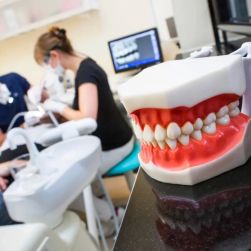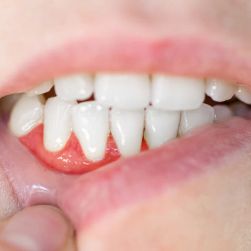Understanding Thumb Sucking and Its Impact on Dental Health
Thumb sucking is a natural reflex in many infants and toddlers. While it is common, parents often worry about the consequences of prolonged thumb sucking on their child's dental health. As someone who has dealt with this issue firsthand, I want to share my experiences and insights on how to prevent thumb sucking and the potential effects it has on oral development.
1. Why Do Children Suck Their Thumbs?
As parents, it's important to understand that thumb sucking is a normal part of early childhood development. Infants typically start thumb sucking in the womb, and many continue the habit as a way to comfort themselves. It provides security and a soothing mechanism when they are feeling anxious, tired, or stressed. However, this behavior, while harmless in the short term, can cause problems if it continues beyond the age of 4 or 5.
2. The Dental Consequences of Thumb Sucking
As thumb sucking continues beyond the age of 4, it can have lasting effects on your child's dental health. I remember when my child’s dentist first pointed out the potential risks of prolonged thumb sucking. The dentist explained how the continuous pressure on the teeth and gums can cause dental misalignment, leading to issues like an open bite, crossbite, and even changes in the roof of the mouth (palate). This can result in the need for orthodontic treatment later in life.
Additionally, prolonged thumb sucking can interfere with normal jaw development. The pressure on the upper teeth can push them outward, while the lower teeth may shift inward. This can create space between the teeth, affecting their alignment and the way the upper and lower teeth meet when the child closes their mouth. If left unaddressed, these issues may require costly and extensive orthodontic treatments in the future.
3. Identifying the Right Time to Address Thumb Sucking
One of the most common questions I get from other parents is: "When should I stop my child from sucking their thumb?" According to dental professionals, it's important to intervene before the age of 4 or 5 to prevent long-term dental issues. Early intervention is key to preventing the need for braces or other orthodontic treatments later in life. However, it's essential to approach the situation with patience, as forcing a child to stop abruptly can lead to increased stress and anxiety, which might worsen the habit.
4. Effective Methods to Help Your Child Stop Thumb Sucking
There are several strategies that can help prevent and eventually stop thumb sucking. Here's a list of methods that I have found to be effective:
- Positive reinforcement: Praise your child when they don't suck their thumb, and offer rewards or stickers for every milestone they achieve.
- Gentle reminders: When you see your child sucking their thumb, offer a gentle reminder to stop. Over time, they may start to recognize the behavior and make the connection themselves.
- Substitute with a comfort object: Introduce a soft toy or blanket that can provide comfort and security instead of the thumb. This can be particularly helpful for children who use thumb sucking as a coping mechanism.
- Use a thumb guard: Some parents have had success using a thumb guard or bandage around the thumb. This prevents the child from sucking their thumb without causing distress.
- Consult a dentist: If thumb sucking persists, seek advice from your child's dentist or pediatrician. They can provide further guidance and may recommend a professional intervention if necessary.
5. Encouraging Oral Health Habits Early On
Preventing thumb sucking isn't just about breaking the habit; it's also about promoting good oral health practices. I’ve found that encouraging healthy habits from an early age can make a big difference in my child’s dental development. These habits include brushing teeth twice a day, limiting sugary snacks and drinks, and scheduling regular dental checkups. By instilling these practices early on, you can ensure that your child maintains a healthy smile, even if thumb sucking was a challenge in their earlier years.
6. What to Do If Thumb Sucking Persists
In some cases, thumb sucking can continue well beyond the typical age range. If this happens, it may be necessary to take additional steps to address the issue. This could include behavioral therapy or working with an orthodontist to create a treatment plan that helps guide the child through the process of stopping the habit. In my case, after consulting with a pediatric dentist, we decided to use a gentle, non-invasive method that involved a thumb guard. It was a gradual process, but with patience and consistency, my child eventually stopped.
7. My Personal Story with Thumb Sucking
I can relate to the stress and frustration that comes with dealing with thumb sucking. When my child reached the age of 5 and was still sucking their thumb, I was worried about the potential dental consequences. I took a step back and reminded myself that this was a process, not a quick fix. It took time, patience, and trial and error. There were moments when I felt like we were getting nowhere, but we kept trying different methods. Eventually, my child stopped, and the impact on their dental development was minimal. Today, I am thankful we addressed the issue early, and I am proud of my child's progress.
In conclusion, while thumb sucking can be a source of concern, there are effective ways to address the habit. Early intervention, positive reinforcement, and creating a supportive environment are key to preventing long-term dental consequences. If you’re struggling with this issue, don’t hesitate to consult a pediatric dentist for expert advice and guidance tailored to your child’s needs.






